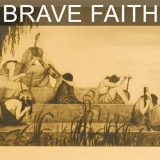The Liberating Religion Our Soul Craves

There is an effect on our overall culture when Church was removed as an influencer. Here are some ways you may not have even thought of. From an article in The Atlantic:
“The deeper question is whether the sudden loss of religion has social consequences for Americans who opt out. Secular Americans, who are familiar with the ways that traditional faiths have betrayed modern liberalism, may not have examined how organized religion has historically offered solutions to their modern existential anxieties.
“Making friends as an adult without a weekly congregation is hard. Establishing a weekend routine to soothe Sunday-afternoon nerves is hard. Reconciling the overwhelming sense of life’s importance with the universe’s ostensible indifference to human suffering is hard.
“Although belief in God is no panacea for these problems, religion is more than a theism. It is a bundle: a theory of the world, a community, a social identity, a means of finding peace and purpose, and a weekly routine. Those, like me, who have largely rejected this package deal, often find themselves shopping à la carte for meaning, community, and routine to fill a faith-shaped void. Their politics is a religion. Their work is a religion. Their spin class is a church. And not looking at their phone for several consecutive hours is a Sabbath.” –Derek Thompson, The Atlantic
I say it is the way of Jesus.
‘Stop at the crossroads and look around. Ask for the old, godly way, and walk in it. Travel its path and you will find rest for your souls.’ But you reply, ‘No, that’s not the road we want!’ Jeremiah 6:16
For reasons of pride…for reasons of independence…for reasons of stubbornness people with souls crying out for a new way would rather choose religion à la carte than Jesus. And when asked to define this religion, it gets to be very creative!
A professor from Boston University as a part of his introductory religion courses asks students to group together and create their own religion. From the story:
“For the past two years, I have asked students in my introductory religion courses at Boston University to get together in groups and invent their own religions. They present their religious creations to their classmates, and then everyone votes (with fake money in a makeshift offering plate) for the new religions they like best. This assignment encourages students to reflect on what separates ‘winners’ and ‘losers’ in America’s freewheeling spiritual marketplace. It also yields intriguing data regarding what sort of religious beliefs and practices young people love and hate.
“The new religious concoctions my students stir up might seem to mirror the diversity of American religion itself. Students tantalize one another with a religion (Dessertism) that preaches the stomach as the way to the soul, another (The Congregation of Wisdom) that honors Jeopardy! phenom Ken Jennings as its patron saint, and yet another (Exetazo) dedicated to sorting out the pluses and minuses of all the other religions so you can find a faith tailored to your own unique personality.
“What strikes me most about my students’ religions, however, is how similar they are. Almost invariably, they mix fun with faith. (Facebookismianity anyone?) But they do not mix faith with dogma. My students are careful–exceedingly careful–not to tell one another what to believe, or even what to do. Above all, they want to be tolerant and non-judgmental. Most of the religions my students developed were fully compatible with other religions.
“They made few demands, either intellectually or morally. Repeatedly, their founders stress that you can join their religion without leaving Catholicism or Judaism or Islam behind.
“…But my students’ ‘dogma aversion’ (as one put it) goes liberal Protestantism one further. These young people aren’t just allergic to dogma. They are allergic to divinity and even heaven. In the religions of their imagining, God is an afterthought at best. And the afterlife is, as one of my students told me, ‘on the back burner.’
“What my students long for is not salvation after they die but happiness (or, in the case of Euphorianity, euphoria) here and now. They want less stress and more sleep. (In fact, two student religions–Sertaism and ZZZ–emphasize the importance of a good night’s sleep.) They want to discover themselves and to give voice to their discoveries. They want to experience joy because of their bodies, not despite them. And they don’t want to be told what to do with those bodies, or with whom.
“One of my students, Carrie-Anne Solana, told me that the religions her colleagues presented in class amounted to nothing more than ‘organized atheism.’ ‘They took normal human impulses,’ such as eating, drinking, sleeping, having sex and socializing, she said, ‘and justified them under the title of religion while not offering any form of explanation into why we are here, where we came from or where we go when we die.’” (Steven Prothero, chair of Boston University’s Department of Religion, USA Today, February 4, 2008)
I kept this from 2008! How much more has this changed with this scary increase of our religion of Enoughness?!
When the neuroscience study of our brains continues to show our need for a religion to order our lives. Imagine the increase in that knowledge since 2008.
What is the summary of these new religions we create to order our lives?
- Happiness here and now
- Less stress and more sleep (how much has that changed since 2008?!)
- Discover themselves and give voice to their discoveries
- Experience joy because of their bodies, not despite them
- Don’t want to be told what to do with their bodies
I still say this is the way of Jesus. These ancient words still speak truth and speak to the soul.
The thief’s purpose is to steal and kill and destroy. My purpose is to give them a rich and satisfying life. John 10:10
Don’t worry about anything; instead, pray about everything. Tell God what you need, and thank him for all he has done. Then you will experience God’s peace, which exceeds anything we can understand. His peace will guard your hearts and minds as you live in Christ Jesus. Philippians 4:6-7
Therefore I, a prisoner for serving the Lord, beg you to lead a life worthy of your calling, for you have been called by God. Always be humble and gentle. Be patient with each other, making allowance for each other’s faults because of your love. Make every effort to keep yourselves united in the Spirit, binding yourselves together with peace. Ephesians 4:1-3
For you have been called to live in freedom, my brothers and sisters. But don’t use your freedom to satisfy your sinful nature. Instead, use your freedom to serve one another in love. Galatians 5:13
(Did you notice how each verse matches up to each bullet point?)
I want to add this mind-blowing truth to the last bullet point. Because it is has changed how I read the Bible. I can’t unsee it now. Hopefully you can’t too. And because it is not my brilliance I am quoting with credit.
“As we discovered earlier, twenty or so years after Jesus, the apostle Paul came along and contextualized Jesus’ teaching for a predominantly non-Jewish audience, an audience whose sexual ethic paralleled much of what we find in contemporary culture, only worse. In the first-century Gentile world, sex was all about sensual pleasure and women were considered commodities. Nothing new there. In the first century, prostitution was not only legal, it was encouraged. While it was considered immoral for a man to have sex with another man’s wife, sex with prostitutes was not. Marcus Tullius Cicero, a Roman philosopher, lawyer, and orator, reflected on the mood of his day when he wrote: ‘If anyone thinks that young men should be forbidden association even with prostitutes, he is certainly very stern; but he is also in disagreement not only with the permissiveness of this century, but even with the custom and indulgences of our ancestors.’
“Prostitutes were not the only legitimate vehicle for extramarital activity. Slaves were used and abused sexually as a matter of course. While it was a criminal offense to have sex with another man or woman’s slave, what slave owners did with their own slaves was their business. Pederasty was legal as long as it involved slaves or non-citizens and as long as a Roman male did not play a passive role. Male passivity of any sort was viewed as weakness. Having sex with young boys was not.
“So, if you think the sexual ethic I’m advocating in this book seems a bit behind the times in our culture, imagine the challenge of introducing this message to the first-century cities of Ephesus, Corinth, and Rome. Yet everywhere he went, Paul found pockets of people who were receptive to his instruction regarding sexual purity. They saw Paul’s message for what it was: a way of life that restored dignity to women and self-respect for me. It was life giving. Liberating.” –Andy Stanley, The New Rules for Love, Sex, & Dating, p. 153-154.
The old, godly way is actually liberating.
I’m grieved that this is the message of Jesus that is not being heard.
Another brave prayer I pray.
Jesus, come save the world with your countercultural way.
I have no idea what that looks like.
I will have no expectations.
I just know that something has got to change.
Change me to better speak your countercultural way. To better live your countercultural way.
May there be clusters of us making life decisions to show this broken world how liberating it is to follow you.
This will be uncomfortable.
This will require bravery.
I am committed. I am dedicated.
Jesus, come save the world with your countercultural way.
The world cries out for liberation.
Amen.
(photo credit: Pexels.com)





